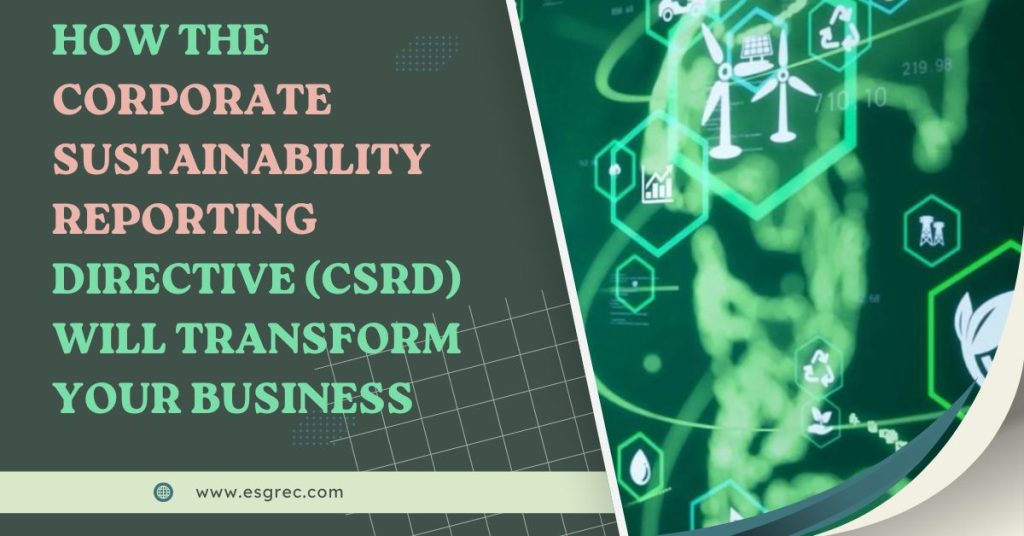How the Corporate Sustainability Reporting Directive (CSRD) Will Transform Your Business

The Corporate Sustainability Reporting Directive (CSRD) is more than just a regulatory requirement—it’s a game-changer for businesses operating in or with the European Union. This new directive is set to standardize sustainability reporting, impacting over 50,000 companies globally, including non-EU businesses with significant EU operations. For CEOs, CFOs, and Chief Sustainability Officers, the CSRD is both a challenge and an opportunity to integrate sustainability into the core of business strategy and operations.
What is the CSRD?
The CSRD is a European Union regulation that mandates comprehensive reporting on a company’s Environmental, Social, and Governance (ESG) performance. It expands on the previous Non-Financial Reporting Directive (NFRD), requiring companies to provide more detailed and transparent sustainability data.
At its core, the CSRD is built on 12 European Sustainability Reporting Standards (ESRS), covering areas like climate change, biodiversity, resource use, human rights, and business ethics. One of the directive’s key features is the double materiality principle, requiring businesses to assess both the financial impact of sustainability on their business (financial materiality) and their impact on society and the environment (impact materiality).
According to PwC’s Global CSRD Survey, this double materiality assessment—referred to as IRO (Impacts, Risks, and Opportunities)—can be complex, as companies must evaluate which sustainability issues are material to both their business and stakeholders.
How Will the CSRD Impact Your Business?
The CSRD is more than a compliance exercise—it’s an opportunity for companies to realign with long-term sustainability goals and create new avenues for growth, value creation, and cost savings. Here’s a glimpse of what businesses should expect:
1. Broader Reporting Scope and Complexity
The CSRD introduces a much more comprehensive range of disclosures than previous frameworks, covering topics like biodiversity, pollution, and workforce considerations across the entire value chain. Businesses will need to rethink how they collect, manage, and ensure the quality of their sustainability data.
2. Double Materiality and Strategic Integration
Businesses must perform robust double materiality assessments to identify which sustainability issues are financially material and which are relevant to stakeholders. This will directly impact how companies prioritize sustainability initiatives, allocate resources, and engage with their audience.
3. Increased Demand for ESG Expertise
With the CSRD’s implementation, the need for professionals skilled in ESG compliance and sustainability strategy is skyrocketing. At ESG REC, we’ve observed a doubling of ESG-related job vacancies since the start of the year, signaling the growing demand for expertise in this area.
4. Cross-Functional Collaboration
CSRD compliance involves more than just the sustainability team—it requires collaboration across multiple business functions such as finance, procurement, legal, and technology. Senior leadership involvement is essential for successful implementation.
5. Emphasis on Technology and Assurance
Long-term compliance with the CSRD will require advanced technology solutions for data management. While many companies still rely on spreadsheets, compliance will demand a move toward specialized disclosure management tools, carbon accounting software, and third-party assurance to verify data accuracy.
Want to Learn the 5 Key Steps to Prepare for CSRD Compliance?
To help your business navigate the complexities of the CSRD, we’ve outlined 5 critical steps you can take right now to get ahead of the curve.
Access the full article by signing up on our website for exclusive content that will guide you through the detailed strategies for CSRD preparation.
Sign up now to get the complete guide!
